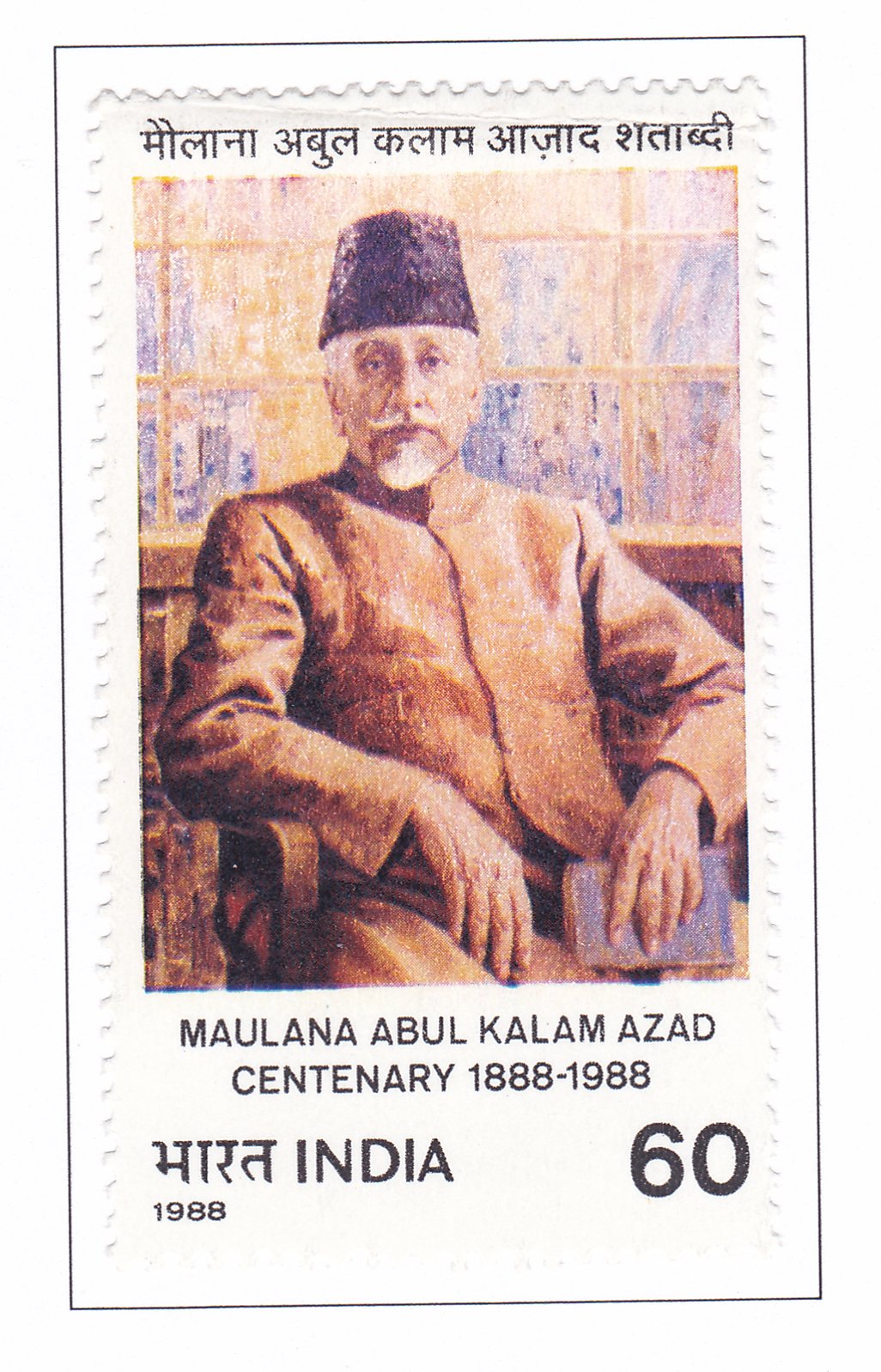Maulana Abul Kalam Azad Centenary

Technical Data
| Stamp Set | Birth Centenary |
|---|---|
| Date of Issue | November 11, 1988 |
| Denomination | 60 p |
| Quantity | 1,000,000 |
| Perforation | comb 13½ x 13 |
| Printer | Security Printing Press, Nashik |
| Watermark | No Watermark |
| Colors | Multicolor |
| Catalog Codes |
Michel IN 1188 Stamp Number IN 1248 Yvert et Tellier IN 999 Stanley Gibbons IN 1336 |
| Themes | Anniversaries and Jubilees | Art | Famous people | Headgear | Men | Paintings | Politicians |
Maulana Abul Kalam Azad
Background and Early Life:
- Full Name: Mohiuddin Ahmad, popularly known as Maulana Abul Kalam Azad
- Birth: Born in Mecca in 1888
- Family: Came from a distinguished family of Muslim divines noted for their learning
- Early Education: Spent childhood in Arabia, studying privately
- Migration to India: In 1898, accompanied his parents to India, settling in Calcutta
- Education in India: Completed a traditional course in higher Islamic education
Political Involvement and Contributions:
- Swadeshi Movement: Deeply influenced by the Swadeshi movement in Bengal
- Al Hilal and Al-Balagh:
- In 1912, started the Urdu weekly Al Hilal to propagate nationalist ideas
- Forced to stop publishing for seditious writings, started another weekly, Al-Balagh, in 1915
- Faced internment at Ranchi in Bihar
Association with Gandhiji:
- Non-Cooperation Movement: On release in 1920, came in close contact with Gandhiji and supported his Non-Cooperation programme
- Khilafat Committee: Chief of the Khilafat Committee
- Congress Leadership:
- Elected President of the special session of the Congress at Delhi in 1923
- Presided over the Jamai-ul-Ulema and Nationalist Muslim Conference in 1924 and 1929
- Member of the Congress Parliamentary Board guiding Congress ministers in 1937
- President of the Congress from 1940 to 1946
- Under his leadership, the historic Quit India resolution was passed at Bombay
Imprisonment and Post-Independence Roles:
- Arrest and Detention: Arrested along with other leaders, detained in Ahmadnagar Fort
- Post-Release Activities:
- Participated in the Simla Conference
- Led negotiations with the British Cabinet Mission
- Constituent Assembly and Interim Government:
- Member of the Constituent Assembly
- Minister of Education and Arts in the Interim Government
Contributions to Free India:
- Ministerial Roles:
- Minister for Education and later for National Resources and Scientific Research
- Deputy Leader of the Congress after the first general election
- Educational Reforms:
- Appointment of the University and the Secondary Education Commissions
- Reorganization of the All India Council for Technical Education
- Development of the Indian Institute of Science
- Establishment of the University Grants Commission
- Foundation of the Kharagpur Institute of Technology
- Setting up of a chain of laboratories for scientific research throughout the country
Legacy:
- Scholar and Statesman: A profound scholar, eminent educationalist, and far-sighted statesman
- Ideals: Represented the ideals of secularism and unity in national life
- Demise: Passed away on 23rd February 1958
Acknowledgments:
- Courtesy: Shri Chintamani Vyas and the Indian Council for Cultural Relations
Maulana Abul Kalam Azad’s contributions to India’s freedom struggle and his efforts in shaping the educational landscape of independent India are remembered with great respect and admiration.
